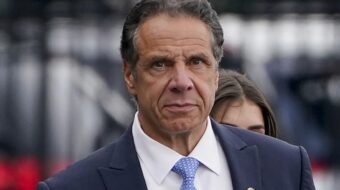Much has written about the New South and expanded opportunity for Blacks and others in the old bastion of Confederate pride, but human rights and civil rights leaders in the region point to racial injustice, voter disenfranchisement, workplace violence, violations of women’s rights and other issues as proof that the New South still has its old problems.
The days of the hooded night riders may take on different forms, but Blacks and people of color still live lives often controlled by others, often through economic slavery.
For the hope brought by African Americans drawn to Atlanta as the Black Mecca of the South, the increased number of Black elected officials at the local, state,and national levels, and the old saying that race relations in the South are more honest than the more subtle racial interactions up North, there are other signs of how far we have to go.
It was in Atlanta, Ga., that a 90-year-old grandmother was shot to death by cops, who invaded her home. It was in Florida that a young Black man died at the hands of guards at a boot camp that was supposed to help turn his life around. In New Orleans, Blacks are denied the right to return to their homes, while Latino workers are scapegoated, exploited, often not paid and threatened with deportation.
In Texas, Wal-Mart underpays and takes advantage of workers fearful of losing low wage jobs, even if it means not receiving hard earned overtime pay and enduring the whims of harsh Supercenter taskmasters. In Mississippi, casinos are rebuilt and speculators gobble up land, but the poor people who suffered the wrath of Hurricane Katrina see the remains of the destruction and little progress toward life as usual.
The land where cotton was king has new rulers that employ old tactics of intimidation to keep workers from complaining, organzing and hoping for a better way of life. Still there is a strain of southern resistance that refuses to accept these conditions, these assaults on human dignity and violations of human rights.
Part of the battle is understanding that these injustices aren’t just wrongs that need to be righted, but violations of international principles that protect people worldwide. The U.S. isn’t exempt from standards of behavior it loves to foist on others around the globe.
Just as the segregationists of the 1960s had a “Southern strategy” for their political success, a Southern organzing strategy is needed to combat today’s challenges. Part of the strategy involves building effective coalitions across the South to show the connections between seemingly different struggles, lend support to varied campaigns, share effective organizing tools and build a bigger base of folks that support social change and justice.
Over the past 10 years, the Southern Human Rights Organizing Network and the bi-annual Southern Human Rights Organizing Conference has been the engine for a growing regional movement that tackles economic justice and other issues.
Since its establishment in September 1996 in Oxford, Miss., the network has sought to link regional organizations and support workers’ rights and other campaigns. When farmworkers launched a battle against Mount Olive Pickles to heighten awareness about that company’s plantation work conditions and rampant unfair labor practices, the Southern Human Rights Organizing Network was there. Network members participated in demonstrations at supermarket chains in key southern cities.
Joining with the Farm Labor Organizing Committee, a member organization, the network supported a boycott against Diamond Walnuts. The best example of long-standing successful collaboration between the network and its members is found in the support of the Coalition of Immokalee Workers’ Taco Bell Boycott. The boycott pushed for an increase in the amount paid laborers in Immokalee, Fla., for back-breaking work picking tomatoes.
Network members participated in the coalition’s Truth Tour and in major demonstrations at Taco Bell headquarters in Irvine, Calif., and at Yum Brands company headquarters in Louisville, Ky. After several years, the campaign won a major victory for the Florida farmworkers.
Most recently, Southern Human Rights Organizing Network organizers joined picket lines in Houston to support the Justice for Janitors strike, which also proved successful.
The network has supported organizing efforts for reauthorization of the Voting Rights Act, and efforts to combat police brutality, racial profiling and felony disenfranchisement.
In a partnership with the Mississippi ACLU and NAACP, the network raised public awareness to force governmental accountability after Hurricane Katrina. Southern Human Rights Organizing Network members campaigned for decent, affordable housing and challenged state and federal officials to provide equal access to post-Katrina resources, including food and shelter.
In the next phase, the Southern Human Rights Organizing Network will establish state caucuses to strengthen the organizations. These state leaders will organize public events and actions to address human rights violations and injustice.
The determination to fight runs deep in the South and these old problems will be attacked with a historic determination to put an end to oppression. When that day comes, we will truly be able to celebrate the rise of a New South.
Jaribu Hill is the founder of the Southern Human Rights Organizers Conference, and founder and executive director of the Mississippi Workers Center for Human Rights, based in Greenville, Miss.









